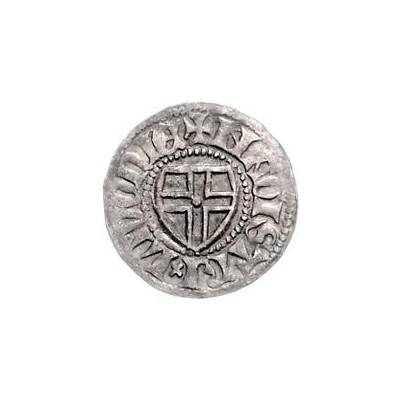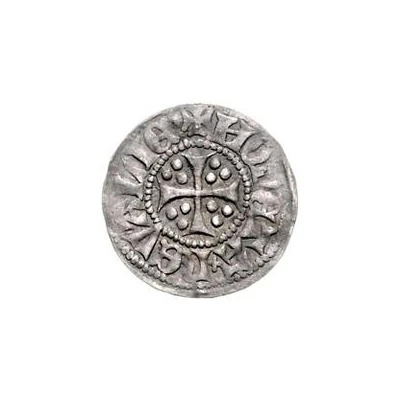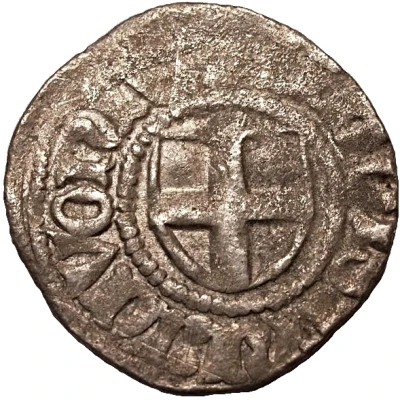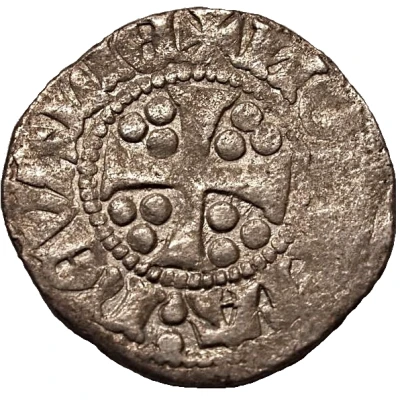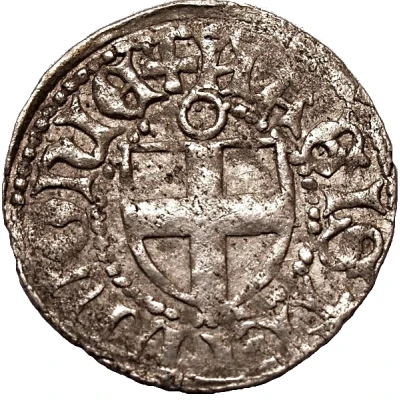
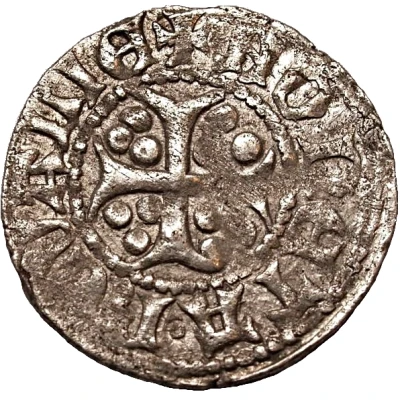

© Haljak Coin Auction
1 Artig - Anonymous Reval; solid cross with circle ND
| Silver | 1.22 g | 18 mm |
| Issuer | Livonian Order (Livonian Confederation) |
|---|---|
| Master | Wennemar von Brüggeneye (1389-1401) Conrad of Vietinghof (1401-1413) Diderick Tork (1413-1415) Siegfried of Spanheim (Siegfried von Spanheim) (1415-1424) |
| Type | Standard circulation coin |
| Years | 1389-1424 |
| Value | 1 Artig |
| Currency | Artig (1363-1426) |
| Composition | Silver |
| Weight | 1.22 g |
| Diameter | 18 mm |
| Shape | Round (irregular) |
| Technique | Hammered |
| Orientation | Variable alignment ↺ |
| Demonetized | Yes |
| Updated | 2024-10-06 |
| Numista | N#140392 |
|---|---|
| Rarity index | 92% |
Reverse
Four sets of three dots around a cross, all surrounded by legend.
Script: Latin
Lettering: MONETA · REVALIE ·
Unabridged legend: Moneta Revaliensis
Translation:
Moneta Revaliensis
Coin of Reval
Edge
Plain
Comment
The solid cross Artigs of Wennemar von Brüggeneye (1389-1401), Konrad von Vietinghof (1401-1413), and Diderick Tork / Siegfried von Spanheim (1413-1424) can be difficult to distinguish. The differences are in the circles that appear above the shield on the obverse.The exact lettering of surrounding legend may vary.
No date (1389-1401):
1) MAGISTRI · LIVONIE · / MONETA · REVALIE ·
2) MAGISTRI · LIVNIE · / MONETA · REVALIE ·
No date (1401-1413):
1) MAGISTRI · LIVONIE · / MONETA · REVALIE ·
No date (1413-1424):
1) MAGISTRI : LIVONIE / MONETA : REVALIE
Interesting fact
One interesting fact about this coin is that it was used as a form of currency during the Livonian Order, a military order that was established in the 13th century in the Baltic region. The coin features a solid cross with a circle, which was a common design element used by the Livonian Order on their coins. Additionally, the coin was made of silver, which was a valuable and durable material that was commonly used for coins during this time period.
